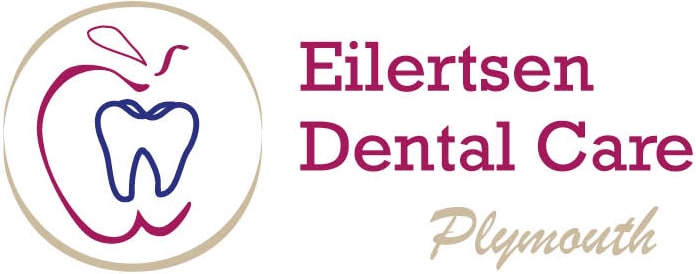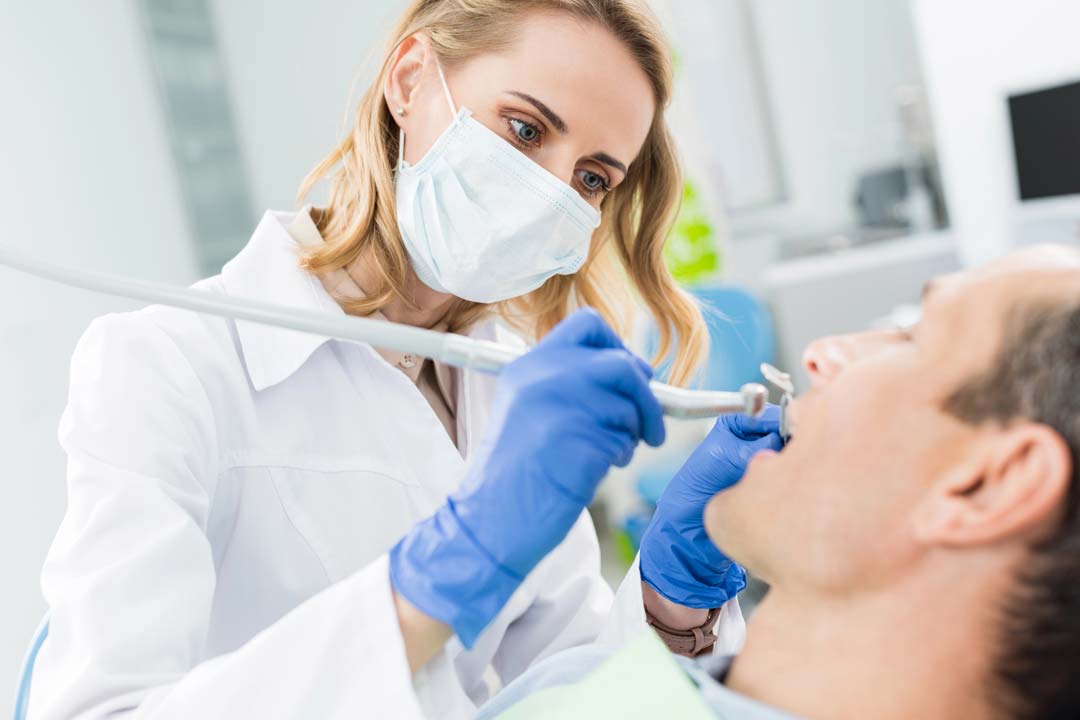Dental emergencies can strike unexpectedly, causing severe pain and distress. Understanding what constitutes a dental emergency is crucial for everyone, as prompt action can make the difference between saving or losing a tooth. From sudden toothaches to traumatic injuries, these situations require immediate attention to prevent further complications and alleviate discomfort.
This article aims to shed light on what is classed as a dental emergency and how to respond effectively. It will explore common types of dental emergencies, provide guidance on identifying urgent situations, and outline immediate steps to take when faced with a dental crisis. Additionally, it will discuss the importance of seeking professional help and offer tips to prepare for and prevent potential dental emergencies.
Common Dental Emergencies
Dental emergencies can occur unexpectedly and require immediate attention. Understanding these common types of dental emergencies can help individuals recognise when to seek urgent care.
Severe Tooth Pain
Severe tooth pain can indicate various dental issues, including deep cavities, cracked teeth, or exposed nerves. This type of pain is often sharp, throbbing, or continuous and may worsen with temperature changes . If the pain persists for more than two days or is accompanied by swelling in the face or jaw, it’s crucial to contact a dentist immediately.
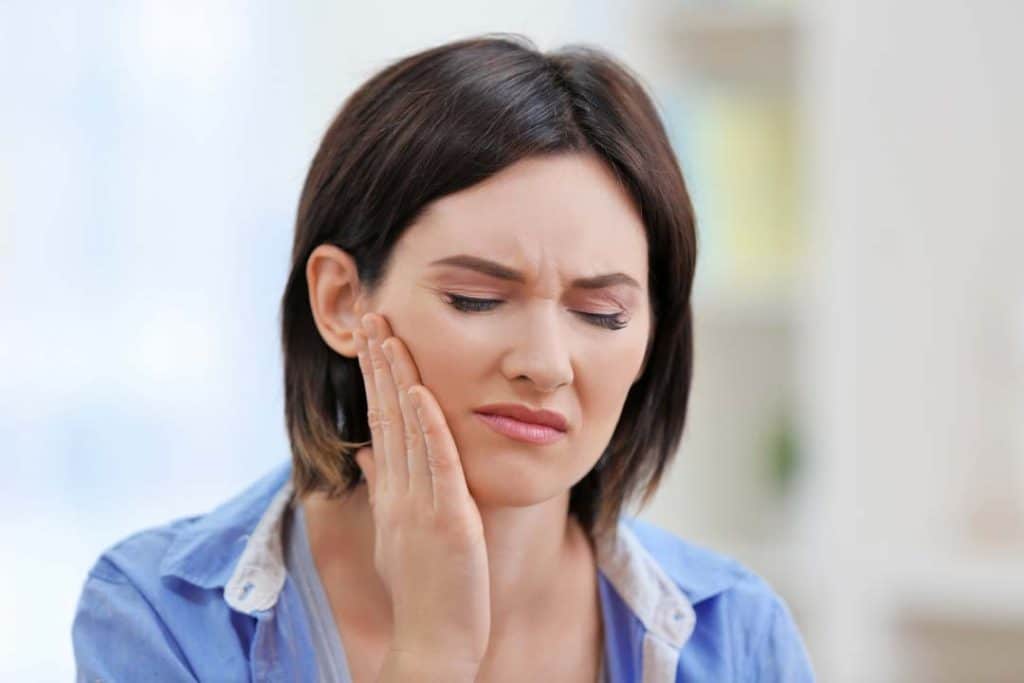
Knocked-Out Tooth
A knocked-out tooth is a serious dental emergency that requires swift action. If an adult tooth is knocked out, it’s essential to handle it carefully by the crown, not the root, to preserve the periodontal ligaments necessary for proper healing . Time is critical; the tooth has the best chance of survival if replaced in its socket within five minutes, with a good survival rate up to 60 minutes if stored properly .
Dental Abscess
A dental abscess is a pocket of pus caused by a bacterial infection, often resulting from untreated cavities or injuries . It can occur at the tip of the tooth root (periapical) or in the gums (periodontal) . Symptoms may include severe pain, swelling, fever, and a bitter taste in the mouth . Left untreated, a dental abscess can lead to serious complications, including the spread of infection to other parts of the body .
Uncontrolled Bleeding
Persistent bleeding after a dental procedure, such as a tooth extraction, can be a cause for concern. While some bleeding is normal, excessive or prolonged bleeding may indicate a dental emergency. Factors contributing to uncontrolled bleeding include clot disruption, certain medical conditions, and medications that affect blood clotting . If bleeding persists beyond 24 hours or is profuse, immediate professional attention is necessary.
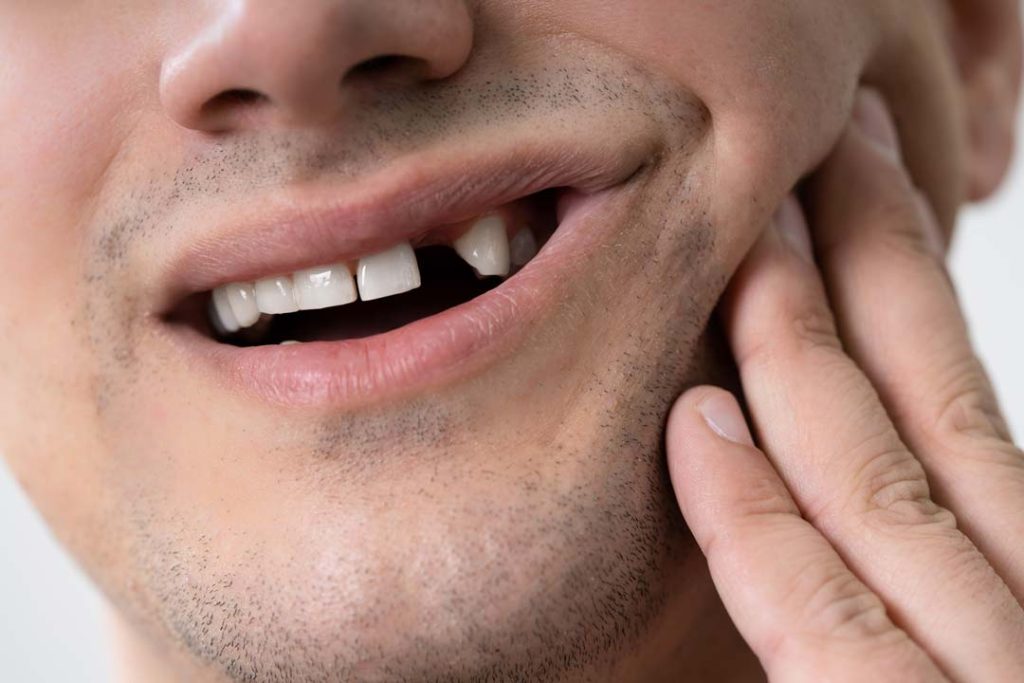
Identifying a Dental Emergency
Recognising a dental emergency is crucial for maintaining oral health and preventing further complications. While some dental issues can wait for a scheduled appointment, others require immediate attention. Understanding the difference can save time, money, and potentially a tooth.
Symptoms to Watch For
Several symptoms indicate a potential dental emergency. Severe toothache, especially when accompanied by swelling or fever, may signal an infection that needs urgent care . Dental swelling, particularly in the jaw, mouth, or cheeks, can point to an abscess or an impacted tooth . Sudden dental sensitivity often results from an abscess or a chipped or cracked tooth . A wobbly tooth in adults might indicate severe trauma or untreated gum disease .
When to Seek Immediate Care
Certain situations warrant immediate dental attention. A knocked-out tooth requires swift action, as the tooth has the best chance of survival if replaced in its socket within five minutes . Uncontrolled oral bleeding, whether from a traumatic injury or other causes, necessitates urgent care . Facial swelling, especially when accompanied by severe pain and fever, may indicate an oral abscess and requires prompt treatment to prevent the infection from spreading .
Differentiating from Non-Emergencies
Not all dental issues are emergencies. A cracked tooth, missing crown, or mild toothache, while uncomfortable, may not require immediate attention . However, these issues should not be ignored, and a dentist appointment should be scheduled at the earliest convenience. When in doubt about the urgency of a dental problem, it’s advisable to consult with a dentist who can assess the condition and determine whether immediate or non-urgent care is necessary.
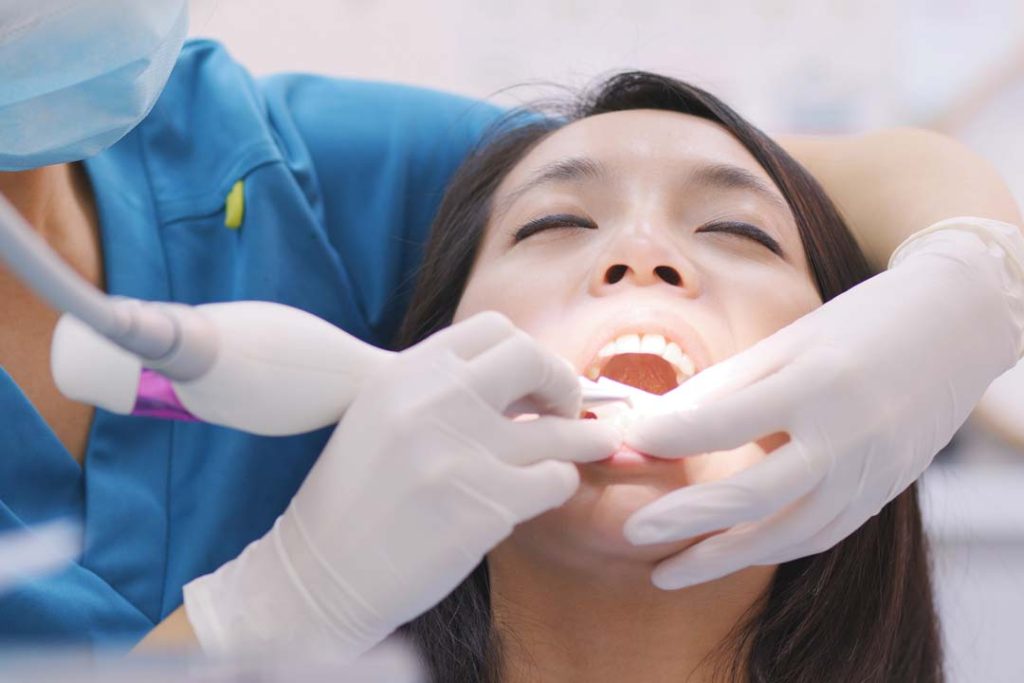
Immediate Steps for Dental Emergencies
First Aid for Knocked-Out Teeth
When a tooth is knocked out, swift action is crucial. For an adult tooth, hold it by the crown and avoid touching the root. Quickly rinse it with cold water for no more than 10 seconds if dirty. Attempt to reinsert the tooth into its socket, biting down gently on a clean cloth to hold it in place . If reinsertion isn’t possible, store the tooth in milk or saliva to keep it moist . For children older than 12, placing the tooth in their mouth is an option, but caution against swallowing .
For baby teeth, do not attempt reinsertion as it may damage the developing adult tooth underneath . If unsure whether it’s an adult or baby tooth, store it in milk or the child’s saliva and seek immediate dental care .
Managing Severe Pain
To alleviate severe toothache, several home remedies can provide temporary relief. Rinsing with salt water and applying a cold compress can help reduce pain and swelling . Over-the-counter pain relievers like ibuprofen can also be effective . For night time relief, try sleeping with your head elevated and using a numbing gel .
However, if pain persists for more than a day or two, or if accompanied by fever, swelling, or difficulty breathing, professional dental care is necessary .
Controlling Bleeding
Uncontrolled bleeding following a dental procedure or injury requires immediate attention. Apply a cold compress to the affected area to reduce blood flow and swelling . If bleeding persists, place a gauze pad over the site and apply firm pressure .
For post-extraction bleeding, the dentist may need to curette the socket to remove granulation tissue, which can help stop the bleeding . In some cases, local haemostatic agents like bone wax or absorbable gelatin sponge may be used as mechanical barriers .
It’s crucial to avoid alcohol and tobacco during recovery, as these can interfere with blood clotting . If bleeding continues despite these measures, seeking prompt dental care is essential.
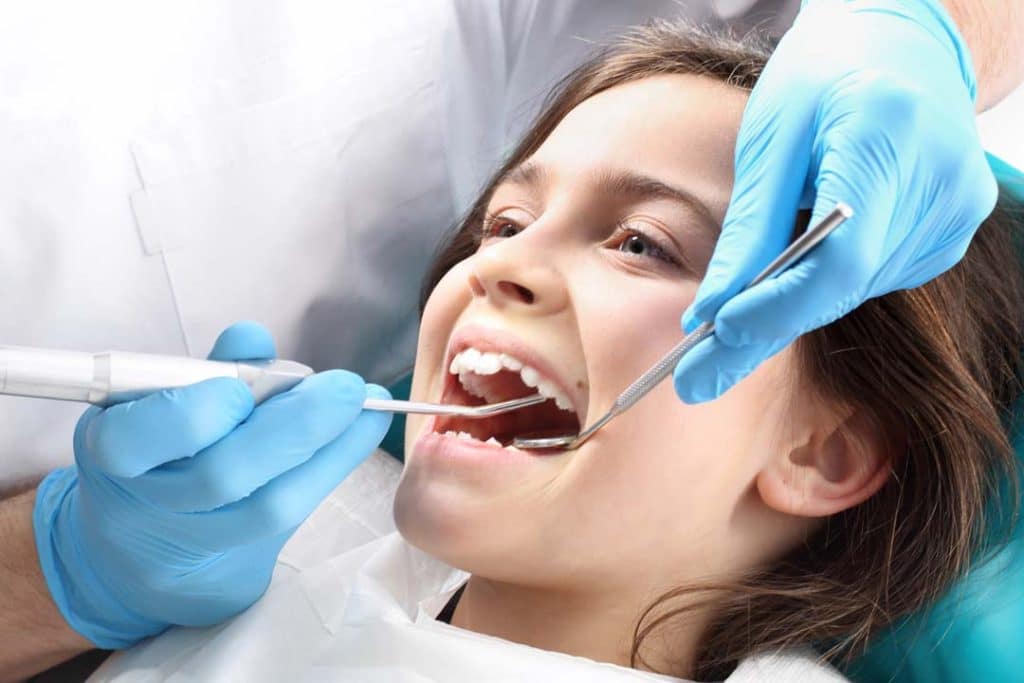
Seeking Professional Help
Finding an Emergency Dentist
When faced with a dental emergency, locating a suitable dentist promptly is crucial. Individuals can search for NHS dentists near their home or workplace using online dentist locators . It’s important to note that dental surgeries may not always have the capacity to accept new NHS patients immediately. In such cases, patients may need to join a waiting list or explore private treatment options .
If difficulties persist in finding an NHS dentist accepting new patients, individuals can contact NHS England’s Customer Contact Centre for assistance . For out-of-hours emergencies, patients are advised to call their regular dentist, as their voicemail may provide guidance on accessing emergency care, or to contact NHS 111 for information on nearby out-of-hours dental services .
What to Expect During Treatment
During an emergency dental visit, the dentist will first assess the situation through a visual examination and, if necessary, X-rays . They will then formulate a diagnosis and explain the recommended treatment, including details about the procedure, recovery time, and follow-up care .
Immediate pain relief is often a priority, with dentists administering local anaesthesia or prescribing painkillers as needed . Treatment may involve procedures such as replacing loose fillings, stabilising loose teeth, or initiating root canal therapy . In some cases, the dentist may provide temporary solutions, scheduling follow-up appointments for more comprehensive treatment .
Follow-Up Care
Follow-up care is essential for ensuring proper healing and preventing complications after emergency dental procedures . Patients should attend all scheduled appointments, even if they feel better, as these visits allow the dentist to monitor progress and make necessary adjustments .
Maintaining good oral hygiene is crucial during the recovery period. Patients should follow their dentist’s instructions regarding brushing, flossing, and using mouthwash . It’s also important to communicate any persistent pain, swelling, or other symptoms during follow-up visits to ensure appropriate treatment .
Conclusion
Dental emergencies can have a significant impact on our oral health and overall well-being. By understanding what counts as a dental emergency and knowing how to respond, we can better protect our teeth and gums from serious harm. Quick thinking and prompt action are often key to saving a tooth or preventing an infection from spreading.
In the end, being prepared for dental emergencies is crucial. This means knowing how to find an emergency dentist, having a basic understanding of first aid for dental issues, and keeping up with regular check-ups to prevent problems before they start. Remember, when in doubt about the seriousness of a dental problem, it’s always better to err on the side of caution and seek professional help.

FAQs
What is classed as a dental emergency?
A dental emergency is typically identified by conditions that may require immediate attention in an Accident & Emergency department. These include uncontrollable bleeding following extractions, rapidly increasing swelling around the throat or eyes, or trauma specifically affecting the dental arches.
Does having a cavity constitute as a dental emergency?
While discovering a cavity during routine teeth cleaning isn’t usually an emergency, it should be examined promptly. However, if the cavity is causing significant pain or other severe symptoms, it should be treated as a dental emergency.
Is a decaying tooth considered a dental emergency?
A decaying tooth becomes an emergency if it causes severe pain that makes waiting for a regular dental appointment impractical. Other signs that necessitate immediate dental care include facial swelling or the presence of pus around the tooth, as well as if the decay leads to a broken tooth with sharp edges.
Contact us for an Emergency Dental Appointment
Please contact us immediately if you are in need of an emergency dental appointment. We will do what we can to see you as soon as possible. Whether that’s to help relieve pain, severe bleeding or uncontrolled bleeding or any other serious dental problems.
For emergencies Call Now on 01725 910640
